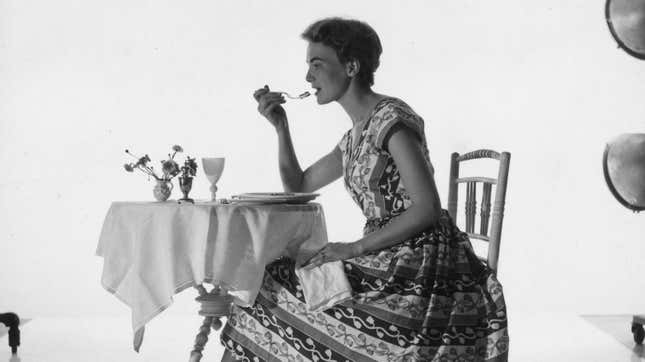Eating Alone and Loving It
Latest
Image: Carlton/Housewife
The first meal I ate in my new apartment was not so much a meal as it was an assortment of panic purchases from a 24-hour deli and fruit stand around the corner. The apartment was mostly unpacked, but there were boxes on the floor bound for the recycling bin. I had spent the whole day doing errands that were mostly stupid, and now, it was 9 P.M. and I was starving. The “dinner” I purchased was really a sad appetizer plate: some grapes, a few beverages, and a hunk of cheese. This was all I could muster, and I’m happy to say that it solved the conundrum that has plagued me for some time: cooking for one.
Even when I lived with roommates and was ostensibly cooking a meal for one, I always made enough for leftovers, and usually, if the food I made was good, I would share. My cooking philosophy isn’t particularly unusual or noteworthy; I like cooking a lot and am happy to do it, but I love to do it the most for other people. Cooking for myself only isn’t sad per se; I am happy to sit down at the kitchen table with a meal that I’ve made for myself and eat in my own company, but I have yet to master the art of proportions. My instinct when cooking is to make enough food for the week ahead, meal prepping for my previous life as a woman who commuted to an office every day. Breaking myself of those instincts wasn’t necessary during the first part of the pandemic, because I lived with other people who were happy to eat the results of my anxiety: a vat of chicken pastry or pan of butterscotch brownie bars, or any of the other recipes I’ve dutifully transcribed from the internet to a notebook so I can follow along without touching my telephone with hands covered in raw pork.
-

-

-

-

-

-

-

-

-

-

-

-

-

-

-

-

-

-

-

-

-

-

-

-

-

-

-

-

-

-

-

-

-

-

-

-

-

-

-

-








































